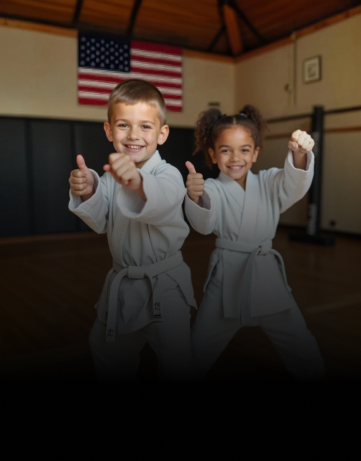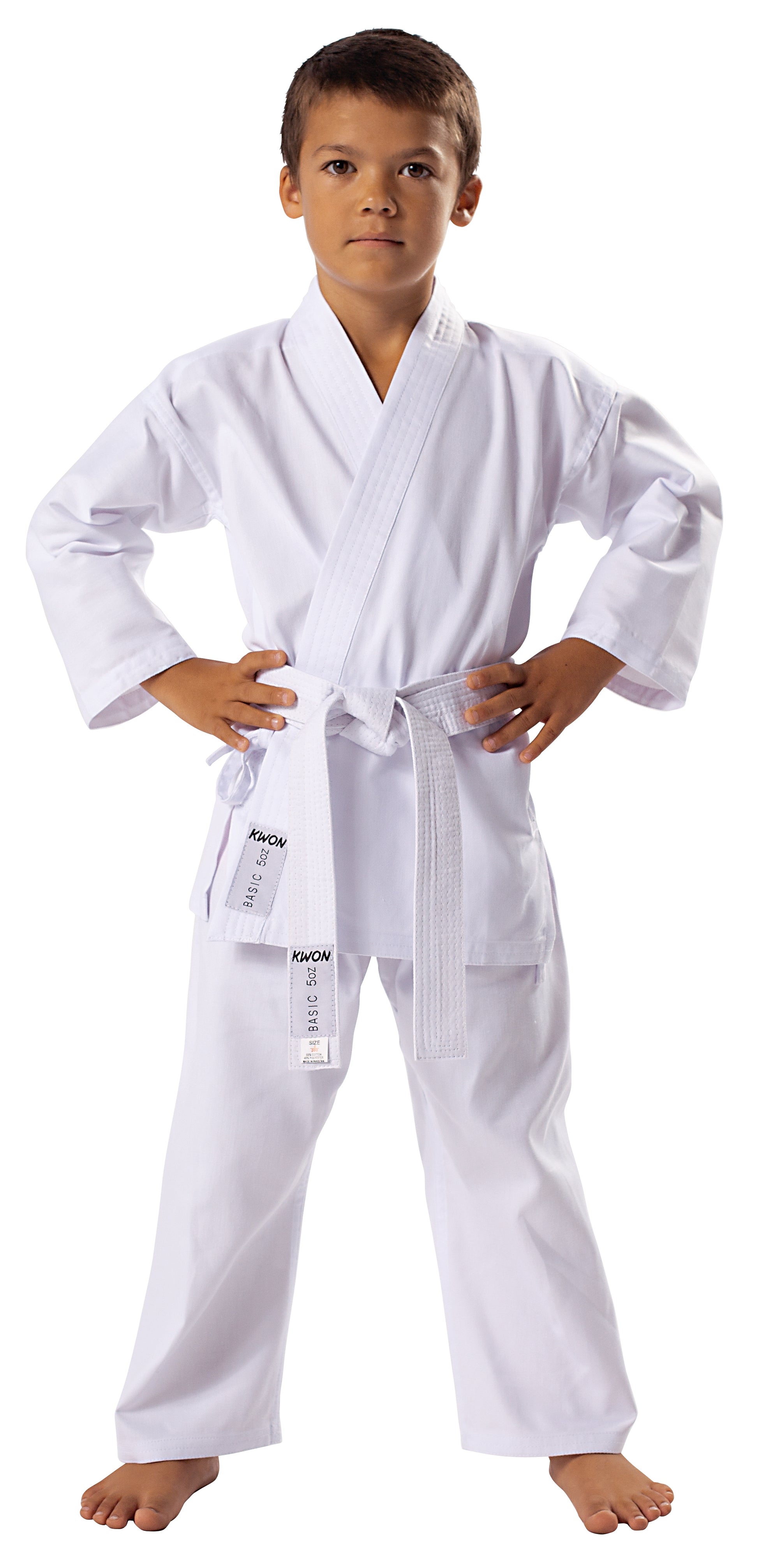Exactly How Karate for Children Can Boost Confidence and Discipline in Young Martial Artists
Karate for children provides an unique chance to construct self-confidence and discipline in young martial musicians. As they learn new techniques and face obstacles, they not only gain skills but additionally develop a solid feeling of self-respect. This structured atmosphere urges them to appreciate the journey of improvement. How does this training translate into their everyday lives? Discover the deeper connections that make karate greater than just a sport.
The Value of Self-confidence in Childhood Years Development
Confidence is a necessary structure block in childhood years growth. When you support your child's self-confidence, you equip them to deal with challenges, take risks, and express themselves freely. Kids with confidence are more ready to explore social circumstances and brand-new tasks, which can cause long-term relationships and beneficial experiences.Encouraging your child to step out of their convenience area cultivates strength. They learn that failure isn't completion however instead a tipping stone to success. By commemorating their achievements, despite exactly how tiny, you help them recognize their abilities and worth.In this trip, assistance and favorable reinforcement from you play an important function. Whether it's via praise or merely existing, your involvement boosts their confidence. As they grow, this confidence ends up being a lifelong property, equipping them to navigate both obstacles and opportunities with a solid feeling of self.
How Martial Arts Teaches Self-control and Emphasis
Martial arts aids you develop technique and emphasis with its organized training routine. As you practice mindfulness during each session, you'll find out to focus much better both on and off the mat. Plus, establishing and accomplishing goals in karate strengthens your capability to stay committed and attentive.
Structured Training Regimen
While you take part in karate training, you'll quickly uncover exactly how a structured routine instills self-control and emphasis in young practitioners. Each class adheres to a particular layout, consisting of workouts, technique practice, and sparring. This consistency shows you to respect the process and commit to improvement. As you discover forms and techniques, you establish a feeling of duty for your very own progress.The organized environment encourages you to set objectives, whether understanding a new belt or improving a kata. You'll locate that remaining concentrated during courses and drills sharpens your concentration. The technique you cultivate in martial arts expands past the dojo, positively affecting your schoolwork and day-to-day routines. Each session reinforces the significance of commitment, assisting you become an extra self-displined person.
Mindfulness in Practice
As you exercise martial arts, you'll locate that mindfulness comes to be a vital part of your training. Each action requires your full attention, helping you stay concentrated on the here and now moment. You'll learn to tune out interruptions and focus on your breathing, motions, and intentions. This heightened understanding hones your reflexes and boosts your discipline.During sparring or forms, you'll find the relevance of being mentally present - Karate Salisbury MD. You'll notice exactly how this emphasis not only improves your technique however additionally develops your self-confidence. By exercising mindfulness in martial arts, you cultivate persistence and durability, vital qualities that prolong past the dojo. This way, martial arts teaches you to harness your mind, aiding you develop a disciplined method to challenges both on and off the floor covering

Goal Setup Techniques
Setting goals in martial arts isn't simply concerning making belts; it's a powerful method to cultivate self-control and focus. When you set particular, attainable targets, you create a roadmap for your progress. For instance, as opposed to simply intending to boost your kicks, attempt concentrating on grasping a specific method monthly. This approach keeps you motivated and engaged.Breaking down larger goals into smaller sized, convenient steps assists you track your development and commemorate small victories along the road. Whether it's developing your position or enhancing your sparring endurance, every goal reinforces your commitment. As you accomplish these goals, you'll build self-confidence in your abilities and develop a strong sense of discipline that expands beyond the dojo into daily life.
Structure Strength With Martial Arts
Fighting style, especially martial arts, provides kids a special opportunity to construct resilience in an encouraging environment. In courses, they deal with challenges that press their limitations, whether it's sparring or grasping a new technique with a companion. Each obstacle, like a missed out on kick or a shed suit, comes to be a chance to find out and grow.As they practice, youngsters learn to welcome discomfort and keep attempting, even when points get hard. They find that failing isn't the end; it belongs to the journey. This state of mind helps them recover more powerful, not simply in the dojo, but in day-to-day life.With each obstacle they get rid of, your youngster builds self-confidence in their capability to take on obstacles, sustaining their resolution. With karate, they'll understand that strength isn't simply about physical strength; continue reading this it has to do with mental grit and determination, encouraging them to encounter whatever life tosses their way.
The Role of Respect in Karate Training
Respect is a foundational principle in karate training, fostering a society of technique and sociability amongst pupils. When you tip onto the dojo flooring, you're not simply discovering methods; you're likewise discovering to appreciate your trainers, peers, and the art itself (Karate Salisbury MD). Bowing at the beginning and end of class isn't just a rule; it represents your recommendation of others' dedication.as and initiatives you establish shared respect, you'll find it enhances your discovering experience. You'll pay attention a lot more diligently to your trainer and gain insights from fellow students. This environment encourages positive objection and support, enabling everybody to grow together.Moreover, respect grows self-control. Identifying the value of difficult work and humbleness aids you stay concentrated on your training. In turn, this respect equates right into your daily life, boosting your interactions and connections outside the dojo. Via martial arts, you find out that regard is important for personal development and area structure
Accomplishing and setting objectives Success in Martial arts

Social Skills and Teamwork in the Dojo
While training in the dojo, kids normally create essential social abilities and team effort abilities. As they exercise together with peers, they learn to connect properly, nhl scores share area, and support one an additional. Each class offers chances for collaboration, whether it's throughout partner drills or team exercises. This synergy promotes relationships and produces a sense of belonging, making the dojo a nurturing environment.Kids likewise gain beneficial dispute resolution abilities. When they come across challenges, such as differences during sparring, they discover to navigate these circumstances constructively. They exercise persistence and compassion, comprehending that every person has different staminas and weaknesses.Moreover, participating in team tasks cultivates a feeling of liability. You'll see your kid finding out to depend on colleagues and take responsibility for their function in a team. These experiences not only improve their martial arts journey yet likewise outfit them with social tools they'll bring into other locations of life.

The Long-Term Perks of Martial Arts Beyond Youth
As kids mature and change right into the adult years, the advantages of karate extend much past the dojo. You'll discover that the discipline and emphasis discovered through martial arts can convert right into your academic and professional life. Establishing and attaining objectives in martial arts fosters a strong job principles, which can push you to master any endeavor.Moreover, the confidence gained from mastering strategies and competing can boost your self-confidence, helping you take on difficulties head-on. This resilience comes to be invaluable as you deal with the unpredictabilities of adulthood.Additionally, the social skills developed with team effort and sociability in the dojo can result in better connections in both individual and expert rounds. You'll learn to interact effectively, willpower problems, and build a helpful network.Ultimately, karate forms not just knowledgeable martial artists, however well-shaped individuals prepared to tackle the globe.
Frequently Asked Concerns
What Age Is Ideal to Beginning Karate for Kids?
You can begin martial arts as very early as age four or five, however it usually depends on your kid's maturation and passion. Locating a course that suits their age and energy level makes a huge distinction.
Exist Any Kind Of Wellness Benefits From Practicing Karate?
Yes, practicing karate offers many wellness advantages. You'll boost your stamina, sychronisation, and adaptability while boosting cardiovascular physical fitness. Plus, it improves focus and mental well-being, making it a great option for general physical and psychological wellness.
Just How Usually Should Children Attend Martial Arts Classes?
You must motivate your youngsters to go to karate courses a minimum of 2 to 3 times a week. Consistency assists them find out strategies effectively and develop skills, making their experience a lot more delightful and rewarding in the future.
Can Karate Aid With Handling Stress And Anxiety in Kid?
Yes, martial arts can assist manage anxiety in children. It educates emphasis and self-constraint while offering a risk-free electrical outlet for power. You'll discover your kid growing extra calm and confident as they practice on a regular basis.
What Equipment Is Needed for Kids Starting Karate?
